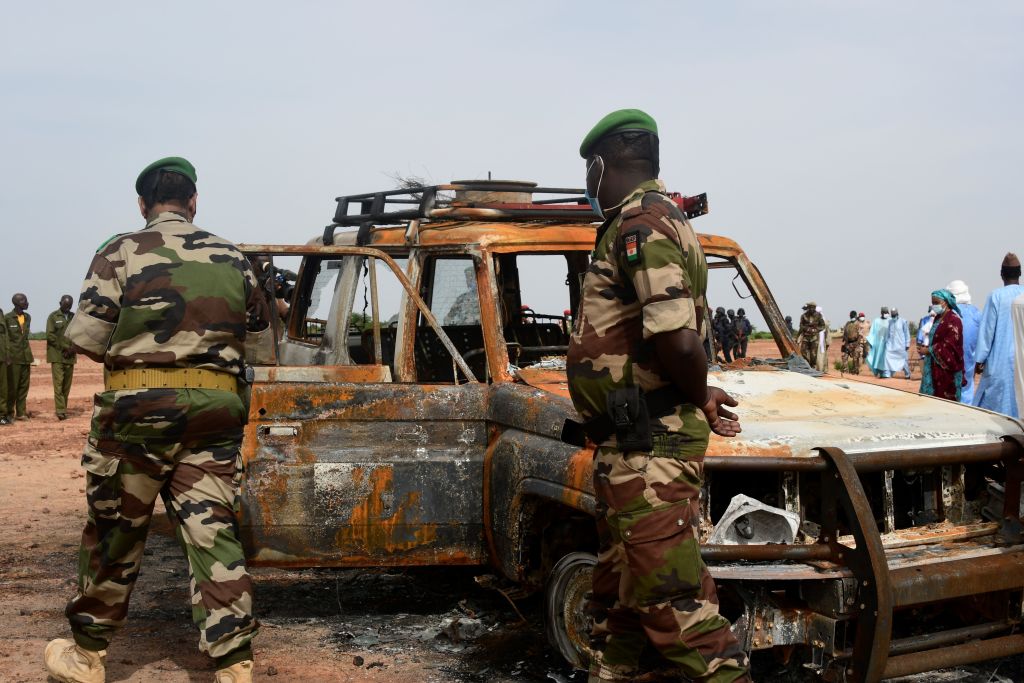ADF STAFF
Terrorists of the Jama’at Nusrat al-Islam wal-Muslimin (JNIM) kidnapped Boubacar Moussa in Niger in 2019 and forced him to fight for them in Mali.
Moussa was with JNIM when Mali experienced the first of its two recent coups in 2020. At the time, he said, many radical extremists viewed the government overthrow as an opportunity. He now fears that the recent coup in Niger will boost extremist recruitment, possibly escalate violence and further erode stability in the volatile Sahel region.
“Jihadis are very supportive of this coup that happened in Niger,” Moussa told The Associated Press (AP).
The Sahel is already bursting with violence fueled by al-Qaida and the Islamic State group. The region accounted for 43% of terrorism-related deaths globally in 2022. Terrorism-related deaths in the Sahel rose by 2,000% between 2007 and 2022, according to the 2023 Global Terrorism Index.
However, Niger was not as affected by violent extremists as neighboring Mali and Burkina Faso as it was the only one of the three countries to experience a decline in violence last year, according to the Armed Conflict Location & Event Data Project (ACLED).
That trend may be reversed if extremists believe the Malian Army is divided over the coup and try to expand their reach, analysts believe. Such was the case after Burkina Faso experienced its second coup in nine months in September 2022.
“I assume Niger will now see a similar scenario,” Ulf Laessing, head of the Sahel program at the Konrad Adenauer Foundation, which promotes democracy, told the AP. Laessing added that the coup likely will end dialogue between extremists and the government that had recently begun.
From captivity, overthrown President Mohamed Bazoum has called for resistance to the coup, raising fears of civil conflict.
Nigerian President Bola Tinubu characterized the situation as “a litmus test for democracy in West Africa.” The countries are strategic allies in the fight against violent extremism, and Tinubu chairs the Economic Community of West African States, which has sanctioned the junta claiming to rule Niger following the coup.
Having caused disarray that prompted the establishment of junta governments in Burkina Faso, Guinea, Mali and Niger, extremists may now have the upper hand in establishing rival governance throughout the region. In Burkina Faso, nonstate actors now control more than 40% of the country’s territory.
A 2021 Norwegian Institute of International Affairs report titled “Reviewing Jihadist Governance in the Sahel” was among the first scholarly efforts to examine the dynamics of extremist governance in the region.
The report cited several common features among extremist groups. They often aim to implement sharia by brute force and do not recognize international borders. They devote resources to provide civilian services, justice, training ideological cadres, and organizing councils for dispute mediation. They also seek to draw foreign fighters, funding and support from external sources.
Niger’s coup also has raised fears that Russia’s Wagner Group mercenaries may enter the fray. Such was the case after Mali experienced its second coup in nine months in May 2021. By December of that year, Wagner boots were on Malian soil.
Chaos ensued.
In Mali, the group has targeted civilians during attacks in the Mopti, Koulikoro, Segou and Timbuktu regions. Hundreds of civilians died in those attacks, which included the massacre of more than 500 civilians in Moura in the Mopti region in March 2022.
Overall, 71% of Wagner’s engagement in political violence in Mali has taken the form of attacks targeting civilians, according to ACLED.
Niger’s junta asked for Wagner’s help in early August.
“They need [Wagner] because they will become their guarantee to hold onto power,” Wassim Nasr, a senior research fellow at the Soufan Center, told the AP.

